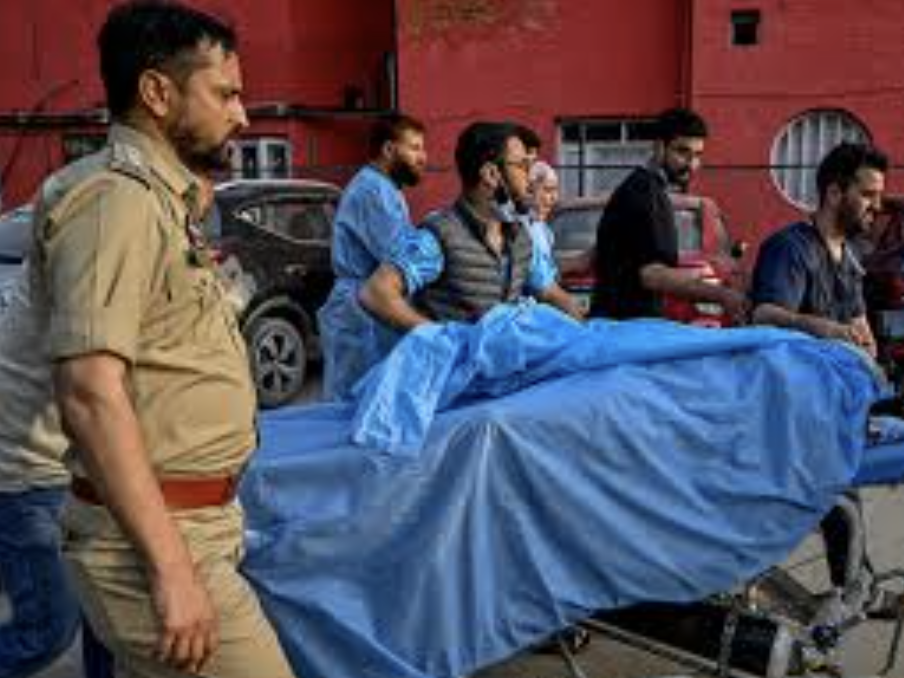Photo via Al-Jazeera
***
On the 10th and 11th of November, two terrorist attacks in New Delhi and Islamabad took place, targeting civilians in the respective capital cities. These attacks reignited festering tensions between India and Pakistan, showing how fragile relations remain and how quickly they could return to conflict.
In the evening of November 10th, a car exploded near the Red Fort metro station in New Delhi. While investigations are still underway, the media and public in India have largely pointed to Pakistani involvement, given the two countries’ long history of violence and resentment. Less than 24 hours later, the city of Islamabad in Pakistan was struck by a suicide bomber outside the District Judicial Complex, killing twelve and injuring dozens of others. The attack was claimed by Jamaat-ul-Ahrar, a splinter group of the Tehreek-e-Taliban Pakistan (TTP). The TTP, more commonly known as the Pakistani Taliban, are themselves a cross-border extension of the ruling Afghanistan Taliban.
Pakistan’s government was quick to respond. The prime minister of Pakistan, Shehbaz Sharif, blamed Indian proxies for the Islamabad attack, labeling it part of a nefarious conspiracy allegedly directed from New Delhi. The military echoed that line, claiming India’s “assets” have been activated to fuel a spike in terror attacks across Pakistan. Pakistani General Ahmed Sharif Chaudhry even accused Indian army officials of supporting militant groups, although both claims currently lack substantive evidence and remain accusations.
India has strongly denied any role in the attack in Islamabad. A spokesperson for the Indian Ministry of External Affairs called Pakistan’s allegations baseless and unfounded. Analysts suggest that New Delhi’s restrained public response may be strategic: under its self-declared doctrine after May’s flare-up, any terror attack may be treated as an act of war, but without concrete evidence, India may be wary of provoking another crisis.
To understand why these blasts are politically dangerous, one must look back to April 22, 2025, when at least 26 tourists were gunned down at a resort in Indian-administered Kashmir. The extremist group The Resistance Front (an offshoot of Lashkar-e-Taiba) claimed responsibility for those attacks. The attacks in Kashmir instigated a crisis in the region that spiraled into military confrontation. India publicly claims that both of these groups have been directly supported by the Pakistani government.
India reacted to the attacks sharply. The Indian government accused Pakistan of sponsoring terrorism and suspended the Indus Waters Treaty, a sixty-year-old water-sharing agreement. On May 7th, in “Operation Sindoor,” New Delhi launched missile strikes on what it called terror infrastructure inside Pakistan and Pakistani-administered Kashmir. The two nations exchanged fire, conducted aerial engagements, and launched missiles and drones before a ceasefire was brokered on May 10th.
With the Kashmir attacks forming the impetus for military clashes in the region, the twin bombings are being seen as a potential starter to renewed war in the region. The attacks risk reigniting a broader military and political confrontation. Pakistan has repeatedly blamed India for violence conducted within its borders, specifically separatist and insurgent groups.
Both countries’ claims of foreign involvement in the terror attacks are currently without any evidence, but the bold claims have the potential to reignite war in the region. Pakistan’s claim of Indian support of the Pakistani Taliban is dubious at best; however, the shared animosity between the two countries is all the evidence some need of foreign involvement. Historically, Pakistan has been willing to support Kashmiri separatist groups, who have attacked civilian facilities in both Kashmir and India. Pakistan has also supported the Taliban prior to the American invasion of Afghanistan, proving Pakistan’s willingness to fund foreign groups.
While both claims of foreign involvement in the terror attacks remain incredulous, it is still possible for the two nations to use the political instability and violence to further their own political goals and create domestic support by using anti-foreign sentiment.
***
This article was edited by Naba Syed and Sarah Davey.
